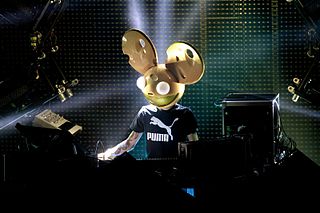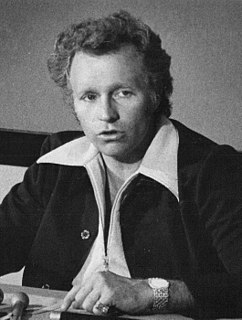A Quote by Chris Milk
Virtual reality started for me in sort of an unusual place. It was the 1970s. I got into the field very young: I was seven years old. And the tool that I used to access virtual reality was the Evel Knievel stunt cycle.
Related Quotes
If you're having a very high-adrenaline, high-movement experience in virtual reality, and then all of a sudden you're back in your office, that disconnect is pretty notable. Whereas if you're using it for virtual reality teleconferencing... there's really no kind of impact moving back and forth between the real and the virtual world.
One of my friends started a company in 1997, seven years before Facebook, called SocialNet. And they had all these ideas, and you could be, like, a cat, and I'd be a dog on the Internet, and we'd have this virtual reality, and we would just not be ourselves. That didn't work because reality always works better than any fake version of it.
At its very core, virtual reality is about being freed from the limitations of actual reality. Carrying your virtual reality with you, and being able to jump into it whenever and wherever you want, qualitatively changes the experience for the better. Experiencing mobile VR is like when you first tried a decent desktop VR experience.
The simulator is the stage in-between television and virtual reality, a moment, a phase. The simulator is a moment that leads to cyberspace, that is to say, to the process because of which we now have two bottles instead of one. I might not see this virtual bottle, but I can feel it. It is settled within reality. This explains why the word virtual reality is more important than the word cyberspace, which is more poetic.
Usually, companies, when they approach other people to do VR, they're like, 'We're gonna offer a virtual reality experience' - to me, that usually means they're gonna put a bunch of 360° cameras in a room, film something, and wrap the video in a sphere so you can head-track and look around. To me, that's not virtual reality. That's 360° video.
There are certain ways, narrative forms, that do not function as a continuation, for example, of 3D movies. You see, what is obvious to me is virtual reality or immersive 360 degrees virtual reality is not somehow a part of 3D movies, and it is not a new form of video games, it's neither, it is something completely new, something different, and nobody has come up yet with real convincing content.




































